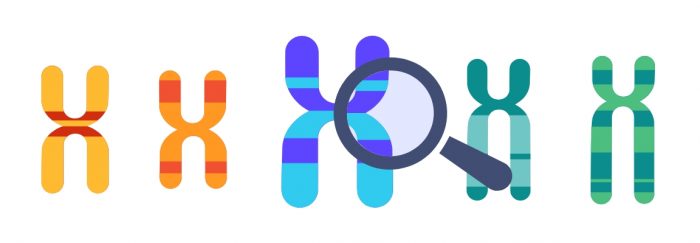A genetic test or DNA test is the study of a person’s genes to find out his or her genetic predisposition to develop certain diseases, it can also be used to determine a person’s ancestry. Nowadays, there are many reasons to have a genetic (or DNA) test.

A simple saliva sample can be used to analyze a person’s DNA. It could be said that DNA is the bar code of a person, therefore, knowing it we obtain very valuable information about that person. For example, to know if there is the presence of mutations related to a multitude of factors. Among them, hereditary conditions, personal traits, ancestry, pharmacological compatibility, etc.
But what does this mean? There are studies that genetically analyze a certain population known to suffer from a disease, for example diabetes. If mutations are found in specific genes common to the entire population suffering from diabetes, it is concluded that, if another person has the same mutation, the probability of suffering from diabetes increases.
Therefore, when taking a genetic test it must be clear that the results are not telling us that we are going to suffer from a specific disease. Rather, it tells us the probability that we are likely to develop certain diseases.
This information is very useful because a disease can develop due to genetic predisposition, but interaction with the environment also has a great influence. Therefore, knowing the probability of suffering from a disease, the relationship with the environment can be modified to avoid its appearance.
Continuing with the example of diabetes, if in the results I have a higher probability of suffering from diabetes, I will be able to control my diet by avoiding the most sugary foods and drinks.
In addition, genetic testing is non-invasive. The person interested in knowing his or her genetic information only has to fill out a repository with his or her saliva. The saliva sample is sent to a genetic analysis laboratory and, later, the results are received.
Once the DNA has been extracted from the saliva sample, DNA amplification is performed to work with it. After this amplification, genotyping is performed. This technique is used to determine the differences existing in the genes of the sample to be analyzed with reference sequences. The reference sequence would be the known mutation and, if the analyzed sample has it, it will be visualized by detection techniques.
Thus, from this technique, it is possible to know whether a person has the known mutations or not. If they do, the probability of developing a certain disease is calculated and detailed in the report.

There are many companies dedicated to the sale of genetic tests. However, at tellmeGen we offer the most complete genetic analysis on the market. With a single saliva sample we offer information about the genetic predisposition to suffer from more than 200 diseases (breast cancer, colon cancer, diabetes, Parkinson’s disease, Alzheimer’s disease, among others), information about whether you are a carrier of any monogenic disease, we also analyze the pharmacological compatibility in more than 100 drugs, personal traits (predisposition to obesity, muscle performance, recovery time in an injury, response to diet, etc.) and ancestry, we tell you where your genes come from.
In short, taking a genetic test provides you with valuable information to better understand your body and your state of health. In addition, this information can be shared with your medical professional and can help in many aspects, from early detection of a disease, to knowing what dose of a certain drug is the most appropriate for you.
If you still have doubts about whether to have a genetic test or not, you can contact our team of specialists composed of physicians, geneticists and biotechnologists at [email protected]. Once you understand the importance of this information, you will not hesitate to know your genetic information.



